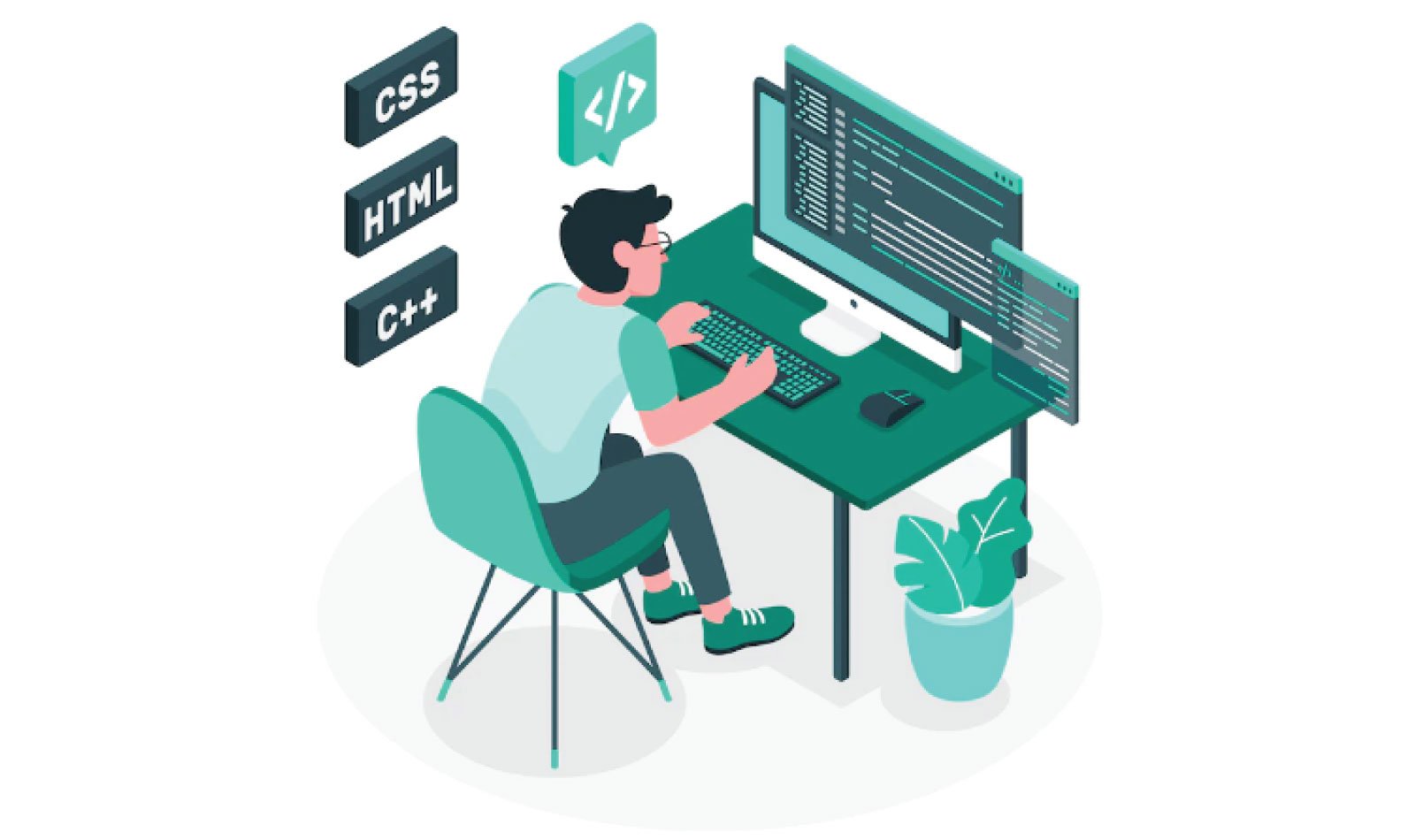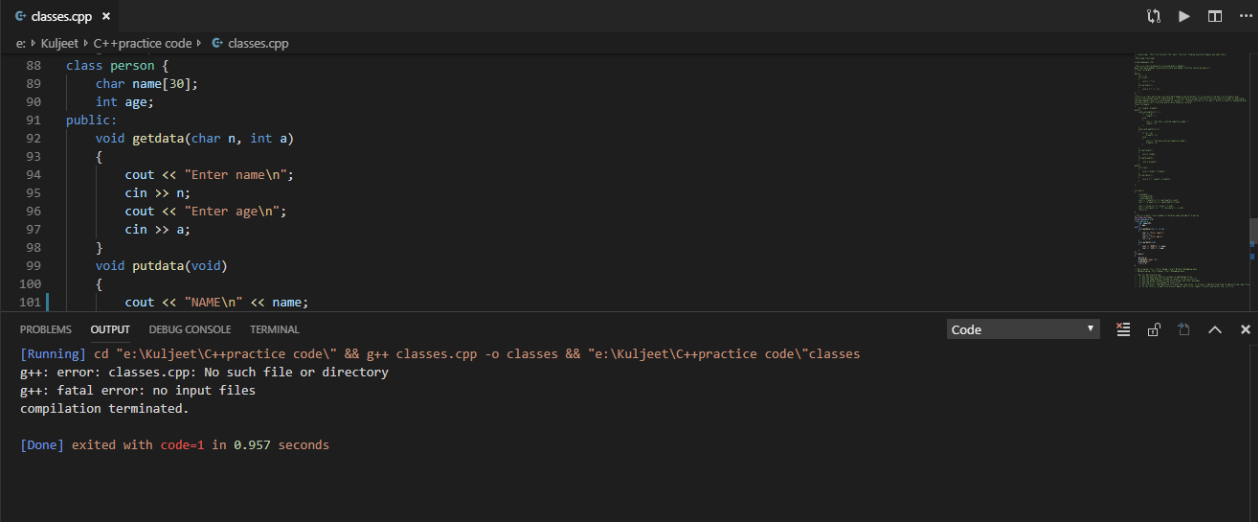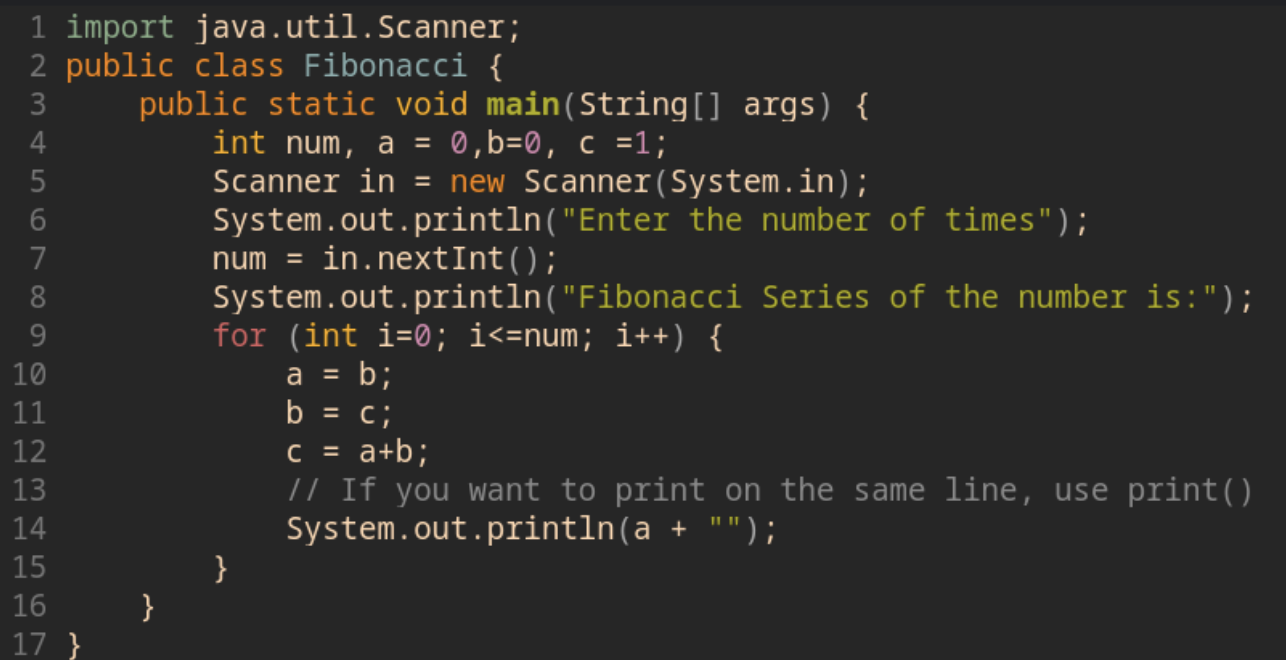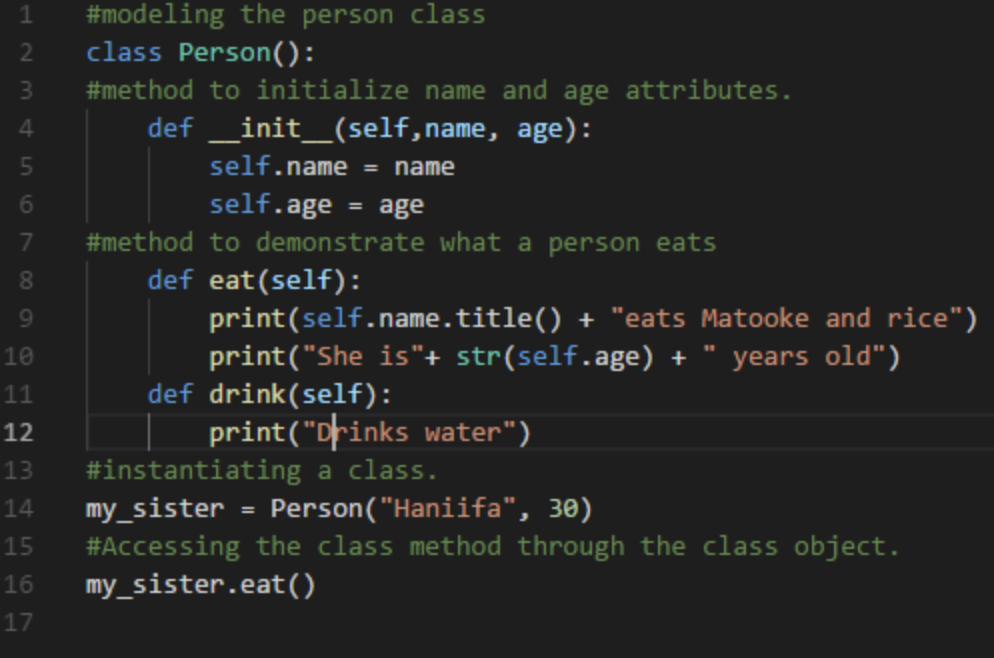Time and time again, coding has been declared the most important job skill for the future. It’s become clear that—even despite changes in the job market—the ability to write software programs is going to be in demand.
Because of how popular coding has become, there are some misconceptions out there about what the job entails. So in this article, we’re going to go over what coders do and the responsibilities that their job entails.
What Is Coding?
Coding is the process of writing instructions that computers can understand so that they know how to perform a particular set of tasks. The code that you write depends on the goals of the system and the constraints of the language in which you’re writing that code.
What Is a Coder?

A coder is someone who uses code to tell computers how to perform different tasks. Computer code is the language using which they communicate with computers.
In the same way that humans have different languages, there are different programming languages for computers. It used to be common for computer programmers to use machine language, which was composed of binary code. But the popular computer languages today are high-level languages like Javascript, C, Python, and Java.
The job of a coder varies depending on the software systems that they’re involved in. An application developer will work on building apps for different platforms, which is what we know as app development. Database developers build and maintain databases and their constitutive elements like database tables and fields. A front-end web developer builds websites and writes code that dictates the behavior of every element of a website.
What Does a Coder Do?
The job of a coder can further vary based on their industry, company size, and the career stage that they’re in. Let’s find out how those factors can influence the job of a coding professional.
Based on Company Size
At Startups
Startups are small organizations that are often still exploring the market and constantly tweaking their product. That means that coders at startups need to be able to learn things quickly and produce updates often.
Coders at startups often get their tasks from product managers. They give them requirements based on what they’ve found out about consumer usage of the product. Each coding professional on the team then sets about building the components that they were assigned.
At Mid-Sized Companies
Mid-sized companies have a stronger idea about what their offering is and the market in which they operate. That means that part of your job as a new coder in the team will be to study the product and find out what makes it tick.
At a mid-sized company, you will find yourself working in a team with multiple other developers. That means that your role will be more specialized than it would be in a startup. You will often work on very specific aspects of a piece of software, and continually tweak that same component over a period of time.
At Large Companies
Large companies are a lot more hierarchical than their smaller counterparts. That means that as a coder, you will probably have to interact with multiple teams and managers working on a product. You will have to learn how to communicate well and take into account multiple viewpoints when working in such an organization.
Working at a large company means that you will have the opportunity to work in many different kinds of roles. For example, let’s say you’re a coding specialist in a front-end developer role. At a large company, you can apply to other positions like data scientist or cybersecurity engineer if you wanted. That’s not always possible in smaller organizations.
Based on Career Stage

Junior Developer
Entry-level programmers usually work under the supervision of the more senior programmers on the team. You will often be required to submit your work to a higher-up and make changes based on their feedback.
The earlier you are in your career, the more likely it is that you’re given less critical development assignments. You might find yourself working on smaller sub-tasks or be placed in a pair programming duo with a more experienced programmer.
Mid-Career Coder
This is a stage of your career when you’ve gained around 5 to 8 years of experience in the coding industry. Not only do you have coding skills, but you also know how programming teams work and deploy code on projects.
Mid-career coders are often given the responsibility of building out an entire piece of software. Think of a case where the team is working on a ride-hailing app. You might be allowed to take over writing the code for the entire payment system or the ride ordering feature. This does mean more responsibility but also the ability to take charge of how a large chunk of the project is executed.
Senior Coder
Senior coders are those who have more than 10 years of experience in the industry. These are professionals who have experience working on many different kinds of projects often across different industries.
Senior coders are considered for leadership roles because of the experience they have. That means that they are assigned entire projects with teams of coders, project managers, and others under them. It becomes their responsibility not just to build out software, but also to oversee delivery, assess consumer feedback, and recommend new updates.
Based on Industry

Government
The government hires a lot of coders in the data science and cybersecurity field. Data science is an important area for the government because it is valuable to be able to process and study the large amounts of public data available to governing bodies at different levels. Coders in cybersecurity ensure compliance with data safety policies and recommend regulatory frameworks for digital projects.
Entertainment
You might not associate programming with the entertainment industry but a large number of coders work at streaming platforms, production studios, music labels, etc. Their work with streaming platforms, for example, can involve building out websites, analyzing market data, and coding new software for audio and video processing.
Healthcare
This is an industry where work by professionals from areas like machine learning and deep learning has accelerated research and led to the creation of new products. Coders in hospital settings or pharmaceutical companies assist with developing image processing techniques to study things like MRI and CAT scans and work in data processing to identify patterns in how diseases develop and spread.
Finance
The world of finance has become increasingly reliant on digital technology. We’ve moved on from simple day trading to algorithmic trading, for example. Coders have been behind this development in a big way. They help develop new financial applications, use data to study market patterns and develop algorithms to detect financial fraud.
Tech
Tech companies do, of course, hire their own coders. The work that software programmers do in a tech company can take a lot of different forms. That includes managing the large databases these companies use, building and managing their internal networks, and developing and engineering new software applications.
The Responsibilities of a Coder

Here are the main responsibilities of a coder across different stages of the software development lifecycle.
Planning, Analysis, and Design
Every software development project begins with these three steps. The planning phase involves studying the requirements of the project and assessing what kind of resources would be required for it. Coders then analyze their target users, to help understand what kinds of systems will be useful for them. Finally, coders come up with a system design that can be used as a blueprint to develop the software.
Implementation
This is the step during which the software is actually coded. Software programmers use the system design document to build the software piece by piece.
This process often involves multiple programmers working on building individual components separately. They are then integrated before being deployed.
Testing, Deployment, Debugging
Every software is tested before it is launched for public use. This happens in phases, where any issues are corrected. The software is then deployed, which means that it becomes publicly available.
The deployment doesn’t mean that coders stop working on it. The process of identifying and eliminating bugs in the software is a continuous one and happens regularly even after deployment.
Maintenance
There are many different aspects of software that require maintenance. The database, for example, needs to be constantly monitored to ensure that it is storing and sending data accurately. Any APIs that you use need to be checked for data integrity and accuracy.
You also need to make sure that all connections between the backend and frontend of the software are working as they should. All of these things come under the maintenance phase.
Get To Know Other Software Engineering Students
Nadia Luna
Student at Springboard Software Engineering Bootcamp
Geraldo Gomes
Software Engineer at Affirm
Tetyana Ilyichova
Software Engineering Apprentice at Affirm
Software Coding Skills
Being a good coder means possessing a few different skills. Let’s take a look at what they are.
Programming
If you want to work as a coder, then you do, of course, need to be good at programming.
The goal isn’t to learn as many programming languages as possible. Rather, you want to get really good at the principles of software development, which you can then apply to any programming language that you learn.
Development Frameworks

There are various software development frameworks out there that can make your job as a coder a lot easier. The following are some of the most commonly used development frameworks in the industry:
- AngularJS
- Django
- Node
- React
- Hadoop
- Cordova
Planning
This is a step that a lot of coders often ignore. You have to be able to chart your software project out before you start coding it. That means having a definite understanding of what the finished product looks like, what its key performance indicators are, what scale it will be used at, and so on.
Analytical Thinking
Every project that you work on as a coder will test your ability to analyze systems effectively. This is important because, when coding software, you need to consider the resources it requires, the data structures and algorithms that are best suited for it, and which features will make it user-friendly. You can build these skills through practice, whether that’s working on projects in the real world or by building hobby projects for yourself.
Logic

Programming has its own logical rules which you need to be aware of. Every loop, algorithm, and conditional construct has an optimum way of being used to solve a particular problem. The better your understanding of logic, the more efficiently you will be able to employ each of those provisions.
Communication and Presentation
There are very few coders who work completely on their own. Most work in teams where they interact with other coders, project managers, customers, etc. So you have to be good at communicating with all these stakeholders in an effective manner.
You will also have to work on your presentation skills as a coder. This can come in handy because there are situations where coders are called on to present the results of their analysis to the company or the final product itself.
Popular Programming Languages
Here are some of the most commonly used programming languages in the software industry.
C

C is a programming language that is widely used to build entire operating systems and embedded systems.
C++

C++ is used to build a whole range of different kinds of applications, including operating systems, database management systems, and compilers.
Java

Java is a popular programming language used for building cross-platform applications of all kinds.
Javascript

Javascript is used most commonly in front-end web development. But it can also be extended to build web servers and in-game development.
Ruby

Ruby is a highly portable programming language and can be used to build websites, automation tools, and desktop apps.
Python

Python is a more recent entrant to the world of programming but has become popular for its simple syntax and diverse capabilities. You can use Python to build websites and apps but it is also widely used for its powerful data analysis features.
PHP

PHP is a server-side scripting language, which means that it is used to build the server side of web applications.
Related Read: How To Become a PHP Developer
SQL

SQL stands for Structured Query Language and is used to store, manipulate, and retrieve the data in a database system.
Coder Career Opportunities
Learning how to code opens up a whole world of opportunities. Here are some of the most common job portfolios that are available to coders.
Web Developer
Web developers are coders who build and maintain websites and apps that run on browsers. Web developers can specialize in frontend development, backend development, and server development.
Computer System Analyst
Computer systems analysts study the computational needs of organizations and help them meet those goals with the computational capacity that is available to them. These analysts run system checks, prepare reports, and troubleshoot software for businesses.
Computer Engineer
Computer engineers develop computational systems by combining computer science with their knowledge of electrical engineering. This is a field that combines the use of both hardware and software systems.
Software Engineering
Software engineers are coders who build and maintain software systems that solve a specific problem. These engineers are tasked with figuring out the different challenges faced by a business and recommending software solutions that they build themselves.
Software Developer
A software developer is a coder who writes programs that contribute to building software. While engineers focus on the needs of clients and the overall architecture of the system in question, developers focus narrowly on coding the specific aspects of the software that they’ve been assigned.
Database Administrator
A database administrator is a software professional who creates and maintains database systems. They use their coding skills to support the design of the database and to ensure its optimum use.
FAQs About Coding as a Career
We’ve got the answers to your most frequently asked questions.
Can You Become a Coder With No Experience?
Yes, you can become a coder with no experience. You can start by upskilling yourself either on your own or with the help of coding bootcamps. Then build out your portfolio of projects and start applying for entry-level coding jobs.
How Much Do Coders Make?
The average salary for a coder in the United States is $89,190.
Do You Need a Degree To Get Into Coding?
Nowadays, you don’t need a degree to get into coding. Companies often hire candidates based on the courses and bootcamps they’ve completed and the coding projects that they’ve worked on.
Since you’re here…
Were you one of the tens of thousands of workers impacted by this year’s tech layoffs? Springboard wants to help. Our new Career Reboot Scholarship is intended to assist job seekers from tech looking to upskill, reskill and stand out in a competitive hiring environment. Get $1,000 off any Springboard bootcamp in software engineering, data analytics, UX design, cybersecurity, tech sales, and more. Visit this page for eligibility requirements and to apply.
![What Does a Coder Do? [2022 Career Guide]](https://www.springboard.com/blog/wp-content/uploads/2022/06/what-does-a-coder-do-2022-career-guide-1.jpg)





